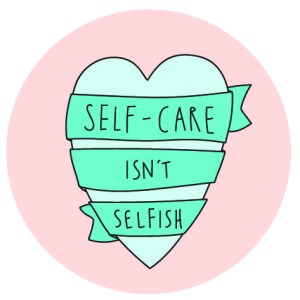Over the years, I have become much more aware of the importance of self-care. Whether you’re a therapist, firefighter, police officer, EMT worker, attorney, or other first responder or helping professional, you’re at risk for experiencing compassion fatigue, Secondary Trauma, Secondary Post-Traumatic Stress, and burnout. Even for those not in the aforementioned categories, self-care is important for you too.
Watch this Trauma Stewardship video on this very issue.
How much do we really take care of ourselves? One question I typically ask each person I work with is about this very issue. What do you do in your day to day to help mitigate and manage stress, to feel relaxed and recharged; or what strategies do you use in reaction to a stressful event? These strategies, both reactive and proactive, can make a major difference in our mental and physical health.
How well we pay attention to and take care of, our needs is worth the effort. For the helping professionals, your work matters, and your ability to be present and carry out that work is important; not just for your clients, but for you as well. How can one be expected to respond to stressful and/or traumatic information or events when you aren’t paying attention to your self-care? One analogy I’ve used is that of being in an airplane, with the attendants informing passengers of safety. If you’ll remember what they advise, when those oxygen masks come down from the ceiling, you put yours on first before you help the person next to you. Why? Because if you aren’t getting oxygen, you can’t help that person at all. I encourage everyone to have a self-care plan.
I teach graduate students and spend a significant amount of time on this subject because of how much we can be adversely affected by the work we do. A self-care plan focuses on healthy coping skills and routines that nourish mind, body, and spirit. Drinking wine at the end of a stressful day would not be something I’d recommend as a self-care strategy. Nor would punching walls or yelling at your significant other!
Proactive self-care could be in the form of eating lunch when you’re at work (a surprising number of people don’t!), taking bathroom breaks when needed (another surprise!), getting at least 8 hours of sleep a night, spending time with friends or family (if they are supportive and helpful), going out, reading a book, watching movies, exercising, practicing yoga, attending a spiritual service – all good things to practice on a regular basis.
Reactive self-care can take many forms, such as journaling, deep breathing, guided imagery, taking a break for a quick walk outside, talking to a colleague to process something stressful – whatever healthy coping skills can be done at the moment as a response to counter the stress you just experienced.
And of course, talking to a therapist may also help us gain a different perspective, notice unhealthy patterns, and make conscious changes to increase self-care and mitigate the impact on us. If you think you might need such guidance or assistance about the Importance of self-care, reach out to us at Specialized Therapy Associates to schedule an appointment with a therapist by calling 201-488-6678. I think you’ll be glad you did!



Leave A Comment